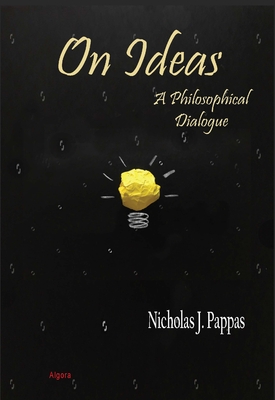
Sound Bite
Know yourself -?? that'??s great advice, but how do we get there? In a lively conversation about the meaning of life, three characters explore a wide range of concepts, including friendship and love, self-discipline and self-respect, trust and justice.
About the Author
Nick Pappas has published a series of over 15 thought-provoking books with Algora Publishing. He teaches high school English Language Arts in Western New York. Prior to that he worked as a director and consultant in information technology. He is a graduate of the University of Chicago and Harvard Law School. Nick has written numerous short stories and poems in addition to his philosophical dialogues.
|
|
About the Book
This book is a philosophical dialogue much in the spirit of classical philosophical dialogues, notably those of Plato and Xenophon. As those authors do in a number of their works, Nick Pappas adopts a light and playful tone to treat a serious...
This book is a philosophical dialogue much in the spirit of classical philosophical dialogues, notably those of Plato and Xenophon. As those authors do in a number of their works, Nick Pappas adopts a light and playful tone to treat a serious topic. This contrast helps bring out the truth, in an approachable style that requires no prior exposure to philosophy and heavy intellectual work.
Readers of this book are guided in turning a critical eye toward their own ideas and thinking, gently prompted by the characters.
This is a good general philosophical text suited to all who may find themselves asking the question, "What is an idea?" And even more so, "What is a good idea?" It's also a good general text for those who simply wish to enjoy themselves in serious philosophical discussion with intriguing personalities.
|
This book is a play about ideas. Professor states early on that 'Every person on Earth is, in one way or another, an idea.'Â This suggestion remains in the background throughout the conversation that follows. What does it mean to be an idea? We can be dominated, captured, by an idea. An idea can, on the other hand, animate us. What makes for...
This book is a play about ideas. Professor states early on that 'Every person on Earth is, in one way or another, an idea.'Â This suggestion remains in the background throughout the conversation that follows. What does it mean to be an idea? We can be dominated, captured, by an idea. An idea can, on the other hand, animate us. What makes for the difference? Director, a philosopher, admits to a fear of being overwhelmed by ideas. Actor shows so much enthusiasm for ideas that he wants to continue the extensive conversation reported here over another meal later that same day.
We live in a nation of ideas, one founded on ideas. We value the free exchange of ideas. We even speak of a marketplace of ideas. If ideas weren't valuable to us, no such market could exist. But few of us question what an idea is. In some important ways, it seems self-evident. But try to give a satisfying answer to the question, 'What is an idea?'Â I don't find it easy. That lack of ease prompted me to write this book.
The action is the characters' thought as represented in what they say. Their spoken words differ from the thoughts in their heart of hearts, though we can guess at what those thoughts might be from what they say. But this is not to criticize them. It means they're like us.
Ideas are related to thought. Director says: 'Some people experience pain from thinking; and some people experience pleasure in thought.'Â Perhaps it is more accurate to say all of us experience one or the other from time to time. But do we cherish ideas that bring us pleasure, and reject ideas that make us work? Then again, why assume that work here is unpleasant? Maybe we do so because pleasure in thinking is an acquired taste, born of wrestling with difficult ideas.
There is no necessary contradiction in taking pleasure in serious things. Serious effort can even be fun. In a way, this is why I wrote this book with a light and comic tone. That doesn't change the fact that I gave as much serious thought to the ideas presented here as I have it in me to give. Contrast helps bring out the truth.
Readers may end up writing an imaginary sequel, the dinner conversation the characters promise at the end, for themselves. It's hard to see how anyone can treat the topic exhaustively. After all, if Professor is right and we're all ideas, what would we have to say about ourselves in such a treatment?
|
|
Pages 212
Year: 2020
BISAC: PHI035000 PHILOSOPHYÂ / Essays
Soft Cover
ISBN: 978-1-62894-413-6
Price: USD 19.95
Hard Cover
ISBN: 978-1-62894-414-3
Price: USD 29.95
eBook
ISBN: 978-1-62894-415-0
Price: USD 19.95
|















